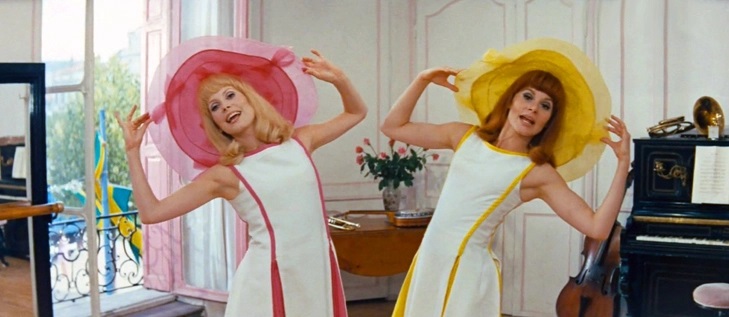
It is conventional wisdom in art criticism that the best comedy and the best musicals are laced with sadness. We speak of art as escape, yet we are typically bored or unmoved by pure farce or purse spectacle.
That’s part of what makes The Young Girls of Rochefort so exceptional. The story of two sisters looking for the love that really is just around the corner, just a matter of missed timing, just about to arrive, would more likely be played as scornfully naive were the movie set a decade earlier or later.
Much has been written of the influence of this film (and Umbrellas of Cherbourg) on Damien Chazelle, whose La La Land copies its jazzy score and street dances but replaces its optimism with a pessimistic fatalism. The love that was just around the corner becomes the connection that was narrowly missed.
In the gulf between such sunny dispositions and such clouded memories lies not just a few decades, not just the experiences of a different generation, but the loss of a belief that the universe (or God or god) is benevolent.
What is most fascinating, though, is how music so aptly expresses both extremes. Delphine and Solange are nothing if not hopeful — and hope expresses itself in song. There are moments of joy not just in life’s great, triumphant moments, but in the daily routines, the familiarity of friends and loved ones, and in the grateful anticipation that another day can bring us color, laughter, and sunshine.
— Kenneth R. Morefield (2022)
- Directed by: Jacques Demy
- Produced by: Gilbert de Goldschmidt; Mag Bodard
- Written by: Jacques Demy
- Music by: Michel Legrand
- Cinematography by: Ghislain Cloquet
- Editing by: Jean Hamon
- Released Date: 1967
- Running Time: 125 minutes
- Language: French; English
Arts & Faith Lists:
2022 Top 25 Movie Musicals — #17